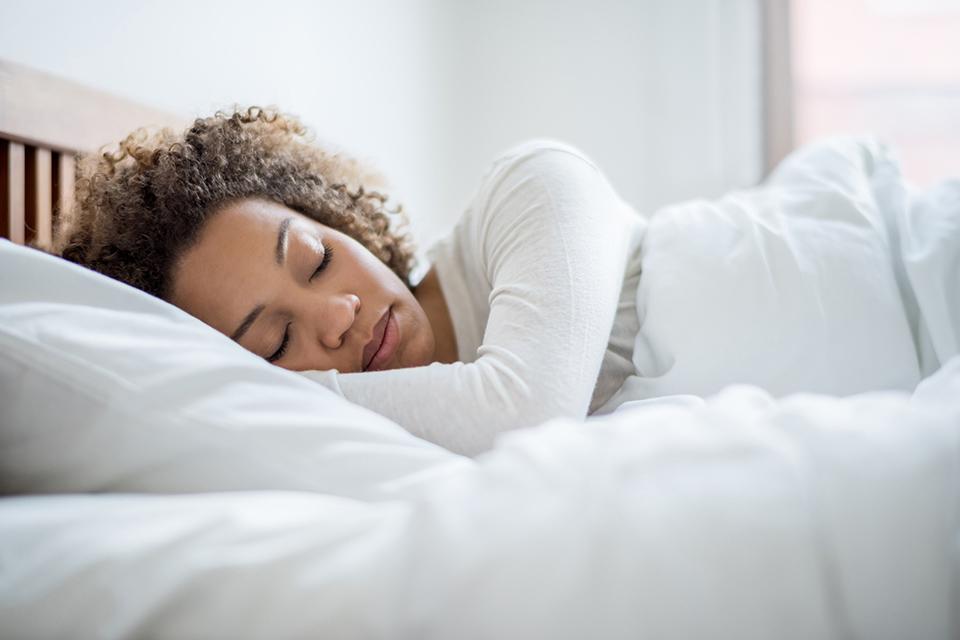Why is sleep so vital? Sleep affects both your physical and mental health. The amount and quality of sleep you get at night has a direct impact on your mood, productivity and energy levels during the day. In turn, your daily routine and life choices can have a great impact on how well you sleep at night. You actually have more control than you realize over the quality of sleep you get.

Most adults get less than seven hours of sleep per night. While they are able to get by on just six or seven hours of sleep, it is not ideal. Keeping in mind that sleep needs differ from person to person, studies show that most adults do best with seven and a half to nine hours of sleep each night. Take a look at these tips and tricks to get the best sleep you can.
Support Your Body’s Rhythms
Get in tune with your normal sleep-wake cycle and keep in mind that routine is key.
- Try to go to sleep and get up at the same time each day. Sticking to a routine plan will help set your body’s inner clock. Set a bedtime when you most often feel tired.
- Don’t sleep in – even on weekends or nights you’ve stayed up late. As tempting as it may be to sleep in on weekends or days off work, just a few hours of change will disturb your inner clock. If you need to make up for a late night, opt for a daytime nap rather than sleeping in.
Control the Amount of Time You Spend in Sunlight
Melatonin is a hormone controlled by light that helps rule your sleep-wake cycle. Your brain secretes more melatonin when it’s dark, making you sleepy, and less when it’s light, making you more alert. Many aspects of modern life (i.e., offices void of sunlight, use of LED lights, TV and computer screens) can alter your body’s melatonin and shift your normal sleep-wake cycle. Here’s what you can do to stay on track:
- Day
Get bright sunlight in the morning.
Spend more time outside during daylight.
Let light into your home or workspace.
- Night
Stay away from bright screens within two hours of your bedtime.
Say no to late-night TV.
When it’s time to sleep, make sure the room is dark.
Keep the lights down if you get up during the night.
Get Exercise
This helps fight insomnia, sleep apnea and adds to the time you spend in deep stages of sleep. Time your exercising right, at least three hours before going to bed.
Be Smart About What You Eat and Drink
- Cut down on caffeine.
- Stay away from big meals at night.
- Skip alcohol before bed.
- Don’t drink too many liquids in the evening.
Wind Down and Clear Your Head
Try to let go of your stress and worries from the day. Use these techniques to help your body and mind calm down:
- Deep breathing.
- Muscle stretches.
- Visualizing a peaceful, restful place. Keep Your Room Dark, Cool and Quiet
Most people sleep best in a slightly cool room around 65 degrees F. Make sure your bed is cozy. Invest in a new mattress or pillow if you find your neck or back hurting.
